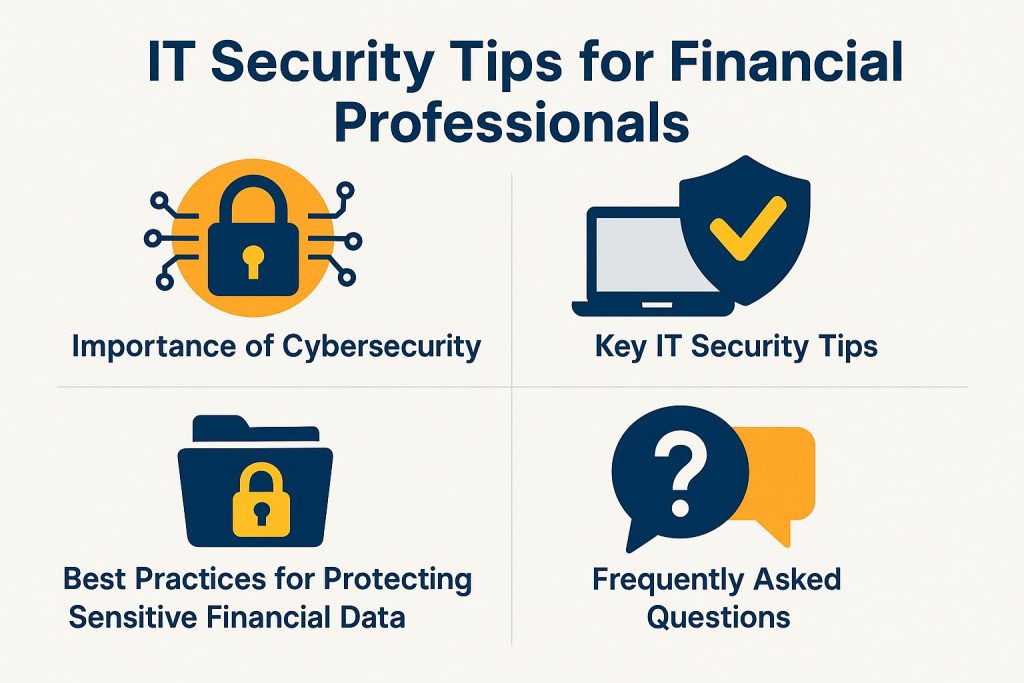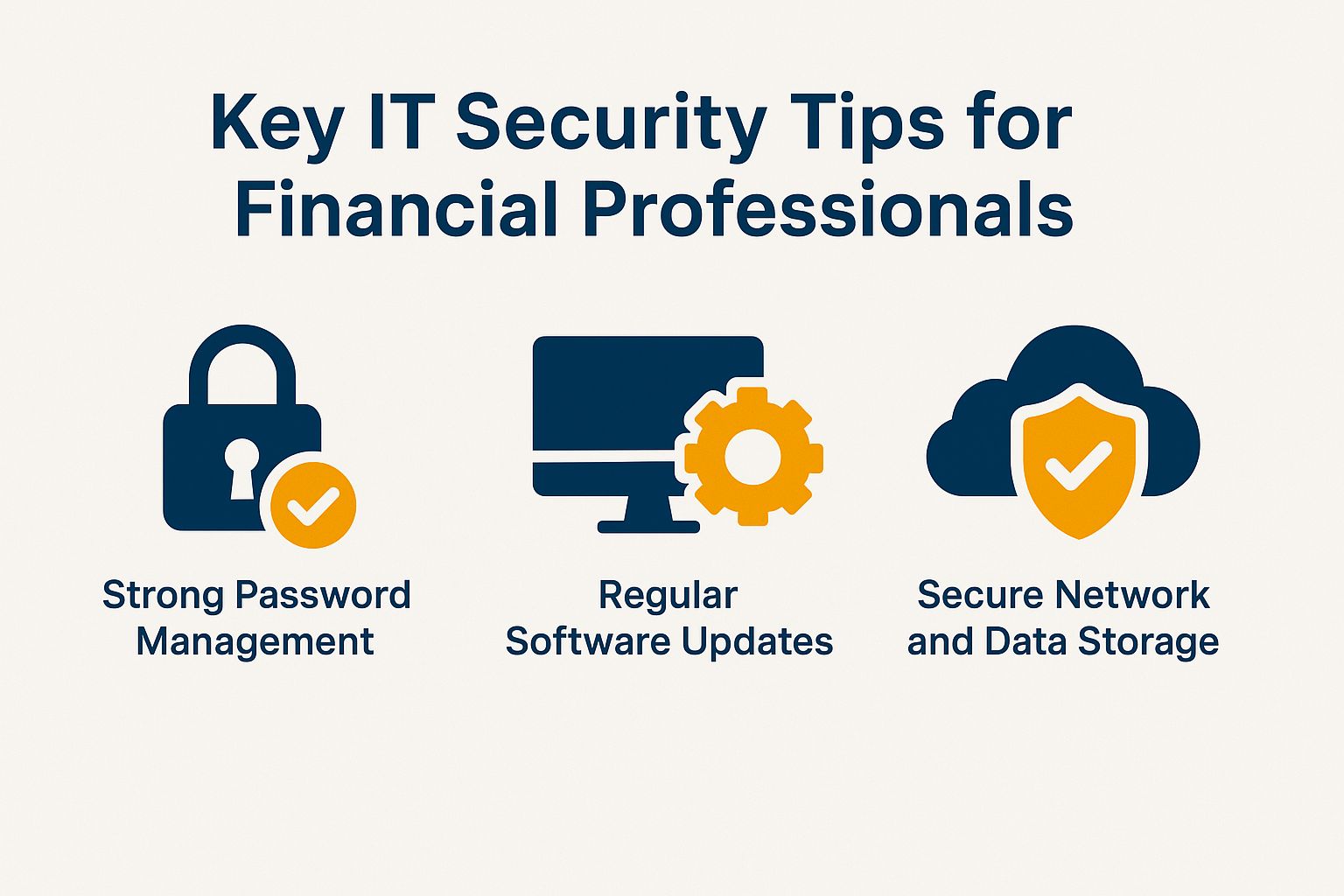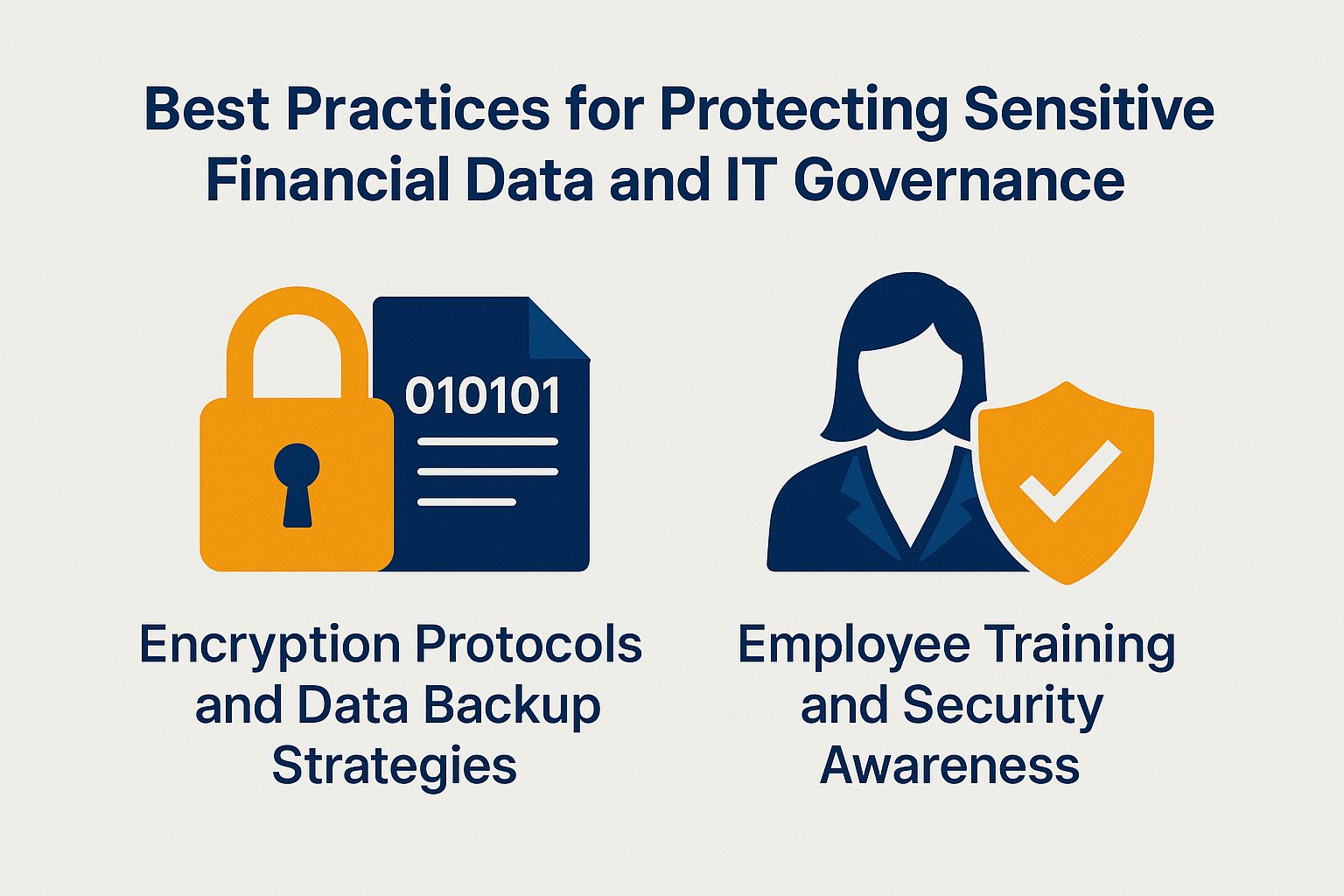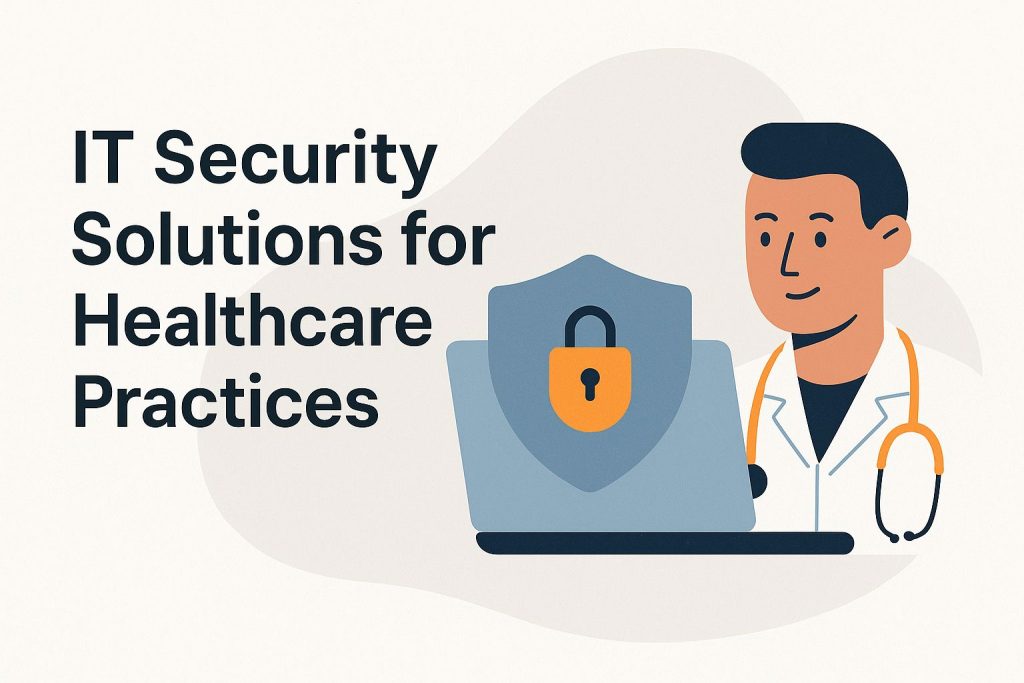IT Security Tips for Financial Professionals

Today, financial professionals face many cyber threats. These threats can harm sensitive data and damage client trust. Understanding the risks of cyber attacks is essential. This knowledge helps protect valuable information and improve IT security. This article outlines key IT security strategies for financial experts. Key strategies include good password management, regular software updates, and secure data storage. These are essential for financial security. By learning these strategies, financial professionals can improve their cybersecurity and ensure compliance in a challenging environment.
Importance of Cybersecurity and IT Security for Financial Professionals
In today’s rapidly evolving digital landscape, IT security has emerged as a critical concern for financial professionals managing sensitive client information and financial data.
The rising frequency of cyber attacks-such as phishing, malware, and ransomware-poses significant risks to organizations, potentially resulting in serious consequences like data breaches, identity theft, and substantial financial losses.
Consequently, it is essential for Financial Professionals to understand and implement robust IT Security measures, including Cybersecurity protocols, to ensure Compliance with regulations and safeguard client trust and privacy. One of our most insightful guides outlines what regulated industries need to know about IT compliance in 2025.
Prioritizing Risk Management strategies, including Encryption Protocols and Secure Password practices, is vital for effectively protecting clients’ interests and mitigating Identity Theft risks.

Risks and Consequences of Cyber Attacks
The risks and consequences of cyber attacks are multifaceted and can have devastating effects on financial professionals and their clients. Cyber attacks pose many risks. They can severely affect financial professionals and their clients. These experts encounter a range of cyber threats, including account takeover attacks that can deplete client assets, as well as social engineering tactics that employ psychological manipulation to gain access to confidential information.
Such vulnerabilities show the need for strong cybersecurity measures and incident response plans. Failing to address these threats not only endangers sensitive financial data but also exposes the organization to significant financial penalties, particularly given the increasing regulatory scrutiny (see also our 2025 IT Compliance Guide for insights on navigating these regulations).
Having a clear incident response plan is essential. It gives financial professionals the tools to address breaches quickly and protect client interests, thereby reinforcing the trust crucial for client retention and overall business success.
Key IT Security Tips for Financial Professionals
For Financial Professionals, maintaining a robust posture in IT Security is crucial for protecting sensitive information and ensuring Regulatory Compliance with frameworks such as GDPR and PCI DSS. As mentioned in our 2025 IT Compliance Guide for Regulated Industries, staying up-to-date with regulatory changes is essential.
By adopting key IT security practices, like secure passwords and two-factor authentication, organizations can build a strong security culture that reduces cyber risks.
These practices not only safeguard client data but also enhance overall Risk Management by ensuring that all employees are aware of and understand their roles in upholding Cybersecurity Standards and Threat Detection protocols.

Strong Password Management and Credential Management
Effective password management is key for IT security. Weak passwords can lead to unauthorized access and data breaches. Implementing security policies that promote secure passwords significantly enhances defenses against cyber threats.
Strategies such as Encryption and Access Control strengthen sensitive client data. They protect against attacks and secure transactions.
To create strong passwords, use a mix of uppercase and lowercase letters, numbers, and special characters. This helps secure software development.
Regularly updating passwords is crucial. This habit reduces the risk of leaks.
Password managers help users generate and store unique passwords. This makes access control easier.
This approach simplifies password management and improves security. Ultimately, prioritizing these best practices is vital. They protect sensitive information and strengthen cybersecurity.
Regular Software Updates and Security Technologies
Regular software updates are essential for IT security. They are especially important for financial professionals handling sensitive data and complex systems, ensuring Endpoint Security.
Outdated software may contain security vulnerabilities that cybercriminals can exploit, making timely patch management crucial for safeguarding against potential threats.
Using antivirus software and consistent updates protects networks from malware and ransomware attacks. This enhances network security.
Plus these measures, conducting regular Vulnerability Assessment is important for identifying and addressing security gaps before they can be exploited, supporting the Security Framework.
Proactive strategies are vital for financial entities under strict compliance regulations. They must safeguard their assets while also maintaining customer trust.
In today’s digital landscape, cyber attacks are more sophisticated. Adopting comprehensive network security practices is crucial.
Software updates are important for more than security. They also improve system performance and reduce downtime, aiding business continuity by fostering a culture of routine updates and comprehensive security efforts. To learn more about optimizing your IT infrastructure, consider exploring how managed IT services can effectively reduce downtime and boost productivity.
Firms can establish a robust defense mechanism against the continually evolving landscape of cyber threats.
Secure Network and Data Storage with Cloud Security
Creating secure networks and data storage is essential for financial professionals. They must protect sensitive information from unauthorized access and cyber threats using cloud security protocols.
By implementing robust security measures like firewalls and secure file sharing, organizations can ensure that client data remains secure, even in scenarios involving remote access.
Additionally, data loss prevention techniques enhance data protection. They safeguard against potential breaches and support security compliance.
Moreover, encrypting data in transit and at rest enhances the integrity of communications. This ensures sensitive information remains confidential.
In today’s digital landscape, cyber attacks are more sophisticated. Adopting comprehensive network security practices is crucial. Implementing multi-factor authentication and conducting regular security audits are crucial for reinforcing defenses against potential threats.
By focusing on these effective methods, financial institutions can not only comply with regulatory standards but also build trust with their clients, demonstrating a strong commitment to personal data protection and protecting their most valuable asset-their data.
Best Practices for Protecting Sensitive Financial Data and IT Governance
Protecting sensitive financial data is a top priority. A breach can have severe consequences for organizations and clients, including IT Risk.
By adhering to best practices like encryption, backup solutions, and disaster recovery plans, organizations can enhance data protection and security architecture.
Additionally, continuous employee training and awareness are essential. They ensure staff understand the importance of safeguarding sensitive information and are prepared to mitigate threats, supporting Security Governance (our guide on managed security services explores how to protect digital assets effectively).

Encryption Protocols and Data Backup Strategies
Encryption and data backup protect sensitive financial data. They ensure data integrity and compliance with regulations. By implementing strong encryption methods, organizations can effectively safeguard client information from unauthorized access. Simultaneously, robust data backup solutions act as a safety net in case of data loss or breaches. These practices contribute significantly to the creation of secure environments where client trust can flourish.
In a landscape characterized by increasingly sophisticated cyber threats, using these tools is vital for operational integrity. Organizations that prioritize data protection through encryption comply with legal standards and enhance their reputation among stakeholders.
Establishing comprehensive backup strategies allows for quick recovery from incidents, minimizing downtime and financial losses. This approach strengthens compliance with regulations like GDPR and PCI DSS. It also reduces risks from data breaches, creating a safer environment for transactions.
Employee Training and Security Awareness
Employee training and awareness programs are vital for creating a strong security culture in financial organizations. Human error is often the weakest link in cybersecurity. By offering comprehensive training on cyber hygiene and insider threat identification, organizations can enable employees to serve as the first line of defense against potential cyber attacks.
Regular updates and refresher courses reinforce security protocols. They keep team members informed about threats, supporting IT compliance and risk assessment.
These cybersecurity training programs typically incorporate a combination of interactive workshops, online courses, and simulation exercises that address key topics such as:
- Phishing identification and social engineering tactics
- Password management including two-factor authentication and credential management
- Secure data handling with a focus on data protection and encryption protocols
Such training enhances individual vigilance and creates shared responsibility for safeguarding assets. The impact of consistent training is notable, as it has been shown to significantly reduce the risk of breaches and enhance the overall security posture, effectively transforming employees into proactive contributors in the ongoing battle against cyber threats.
Frequently Asked Questions
What are some basic IT security tips for financial professionals focusing on IT compliance?
Some basic IT security tips for financial professionals include having strong and unique passwords, regularly updating software and systems, implementing malware protection, and being cautious of phishing scams.
How can financial professionals protect sensitive financial data with cybersecurity policies?
To protect sensitive data, financial professionals should use encryption, restrict access to important files through access control, and implement data backup solutions and disaster recovery plans.
What are some best practices for securing online transactions and ensuring secure payments?
Best practices for securing online transactions include using secure payment gateways, verifying the legitimacy of websites as part of secure communication, and regularly monitoring account activity for threat detection.
How can financial professionals prevent data breaches through regulatory compliance and risk management?
To prevent data breaches, financial professionals should regularly train employees on IT security protocols, conduct security audits, perform regular vulnerability assessments, and implement multi-factor authentication for accessing sensitive information.
What should financial professionals do in case of a security breach and incident response?
In case of a security breach, financial professionals should report the incident, implement damage control, and update their security protocols as part of an incident management plan.
How can financial professionals stay updated on the latest IT security threats and solutions through cyber hygiene practices?
To stay updated on the latest IT security threats, financial professionals can attend seminars. They can also read industry publications and learn about cybersecurity standards. Joining professional associations that focus on IT security for financial institutions is important. Participating in security certifications and engaging with managed security services are also beneficial.




